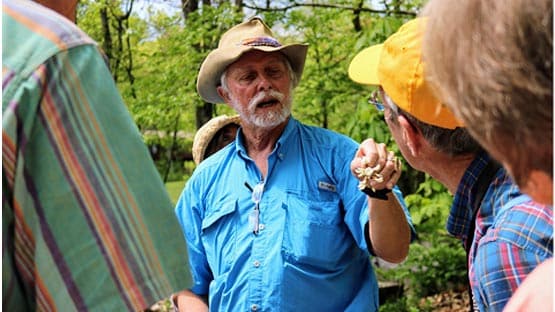
Per- and polyfluoroalkyl substances (PFAS) are a class of dangerous contaminants commonly known as “forever chemicals.”
Samples collected at a treatment plant in Scottsville operated by the Rivanna Water and Sewer Authority (RWSA) show the substances are present in the discharge, posing risks to human health and wildlife.
The public has a chance to express concerns to officials to protect individuals and the environment from PFAS being discharged to the James River in Scottsville.
In documents released by the Virginia Department of Environmental Quality (DEQ), the agency has refused to even acknowledge that the harmful chemicals are present, let alone take necessary actions to control them. DEQ issued a public notice on February 13, 2024, inviting comments on a proposed permit for the facility, which releases treated wastewater to the river.
A public comment period will end on Thursday, March 14, 2024. Wild Virginia will hold an online event to help the public make effective comments. Individuals may register to attend at this link.
The synthetic chemicals are found in products like coatings for non-stick cookware, stain-resistant carpeting and upholstery, grease-resistant pizza boxes and food wrappers, and waterproof outdoor gear. Since first produced in the 1940s, the substances have spread throughout our world, into our waters, wildlife, and even our own bodies.
The characteristics that make PFAS useful in many of the products we value also makes them extremely dangerous. They do not break down quickly or easily, so once they enter the environment they stick around and build up over time. They accumulate in stream sediments, wildlife, and in humans, and humans are exposed when we drink contaminated water, eat polluted fish, or recreate in affected streams or lakes. PFAS also pose risks of a wide range of health effects in very small amounts.
Since recreational contact with waters is a primary way that people are exposed, anyone who uses or wants to use the James River for swimming, boating or fishing should become educated about the issue and express their concerns.
According to Wild Virginia, DEQ has a duty and full authority to require RWSA to sample for PFAS, disclose findings and take actions that would prevent releases of the substances to the environment. The proposed permit, however includes none of these provisions.
“We expect DEQ to do its job now, to prevent PFAS from entering the environment, not wait. For the agency to ignore the presence of PFAS in this discharge is the height of irresponsibility and we cannot accept this abdication of its authority,” Wild Virginia Conservation Director David Sligh.
Sligh said he credits RWSA for taking initiative in gathering data on PFAS in Scottsville.
“Now it’s time to take action based on those findings and other pertinent information. We will support the RWSA in addressing this vital issue as soon as possible.”










